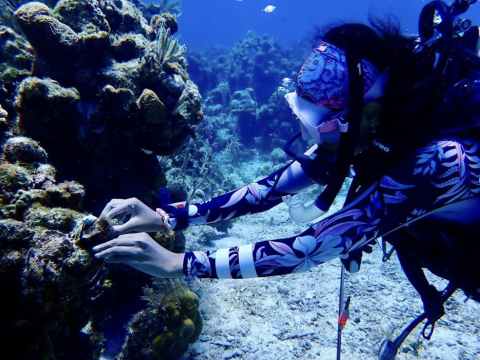Climate & Development Knowledge Network (CDKN), February 15, 2024.
A hurricane hits.
As soon as it is safe, repair teams dive down to clear debris from coral reefs around Honduras, Belize, Guatemala and Mexico.
They recover coral fragments, buried under the sediment by strong storm currents. They also remove the litter and solid waste washed into the reef.
“Then, they reattach the fragments; whatever fragment is still alive,” says Claudia Ruiz, a project coordinator for the Mesoamerican Reef Fund (MAR Fund).
She says all of this must happen within two weeks of a hurricane impact to avoid permanent damage to the coral ecosystem.
MAR Fund and their partners work to procure insurance coverage for emergency reef response at 11 reef sites in the MAR region, and they train the emergency response divers.
She says a key innovation of the MAR Fund’s approach was to consolidate insurance coverage for multiple sites to help reduce the cost of premiums. The insurance coverage includes stipends to reimburse the reef divers for their time and expertise. Insurance to protect reefs and marine ecosystems are extremely rare in the world.
Two of the sites, mainly in Honduras, were insured using a grant from the UNDP-Adaptation Fund Climate Innovation Accelerator (AFCIA). UNDP-AFCIA accelerates innovative technologies, practices and business models for local adaptation through tapping into the incredible potential of NGOs, civil society, women and young innovators.
A portion of that grant was also used to train the brigade members. While most are seasoned divers highly experienced in navigating Caribbean reefs, the art of reef repair is new to them.
They learn, for instance, to identify and retrieve the broken coral fragments that are still alive.
Read the full story here.



